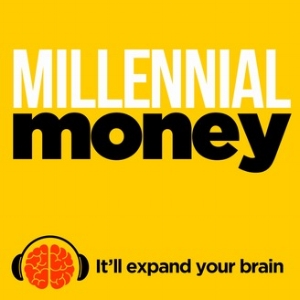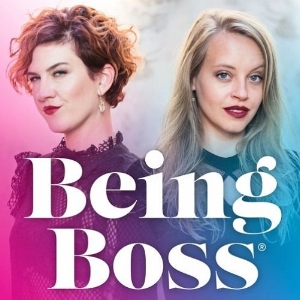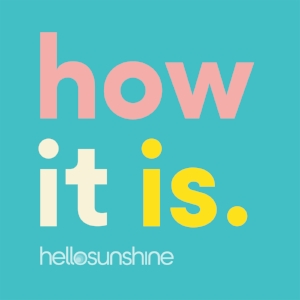6 Podcasts to Listen to on World Mental Health Day
Unplug your mind and plug into these podcasts.
The World Health Organization, or WHO coined October 10th as World Mental Health Day. Here are the WHOs (pun intended) of the podcast world who can help you clear your mind, practice mindfulness, and give you advice when needed. Without further adieu, fill those ears and clear that mind.
Therapy For Black Girls
Licensed Psychologist Dr. Joy Harden Bradford shows us what its like BTS of a therapy session with weekly talks about all things mental health, personal growth, and decision-making. Her goal is to make people the best versions of themselves that they can be with her practical tips and strategies as well as providing context with current trends in that space. She is also open to any questions, so ask away!
Mentally Ch(ill)
We know mental health can be a serious topic, but comedians Kristen Carney adds a zest of humor and lightheartedness that we are addicted to!
Mentally Yours
Another lighthearted take on mental health, however, hosts Yvette Caster and Ellen Scott of Metro.co.uk keep things interesting by chatting to a mystery guest each week and discuss all the complexity in our minds.
The Struggle Bus
Advice from co-hosts Katharine Heller and Sally Tamarkin range from mental health, to self care, to just getting through day-to-day life. They answer listeners’ questions and do not leave any topics off-limits. To them there’s no such thing as a problem that is big or small, or even too weird! Get ready for the wheels in your mind to go round and round, because this podcast will do just that
Talking in Circles
Laura Miller keeps things relatable, authentic, and accessible while opening a safe space for listeners to have the tough convos that we’re often times afraid of having. There is a lot to learn from her and some of her special guests include some of our fave boss babes Joy Cho, Jen Gotch and others!
Let’s Discuss
Friends and Lifestyle Bloggers Ella Gregory and Monica Beatrice Welburn want to grab virtual coffee with their listeners and chat in this podcast that totally goes hand in hand with the C&C brand. They talk about everything, aka “life etc.” and help you navigate you through your lives so you can live the best you can with what you have and end up at the right destination for you. Now, you can listen to how to take on your life journey while on your commuting journey to the office!
Speaking of on brand podcasts, forget to also subscribe to our very own WorkParty podcast if you haven’t already!
By: Ashley Banayan
MORE FROM OUR BLOG
7 Podcasts to Tune Into on International Podcast Day
Your daily commute is about to get a lot more interesting with these podcasts.
We hope your AirPods are charged and ready to go because these podcasts are so good that you won’t want to put them on pause. Filled with words of wisdom and life experiences, these shows and hosts will get you through your morning and evening commute, entertain you during your lunch break, and leave you sitting in your car even when you park your car at home because you will want to finish every episode.
Safe For Work
(N)SFW is here to remind you that things in the office can get hectic at times but Liz Dolan and Rico Gagliano are here to keep you sane during times like these. From resume and cover letter writing, to getting back into work after having a baby, Liz and Rico tackle everything hoping you will feel more fulfilled from your work life.
Switch, Pivot, Or Quit with Ahyiana Angel
Former sports entertainment publicist Ahiyana Angel made the switch to a traditionally published author will route your career trajectory from where it is to where you want to be. She is what she calls a “chief encourager” and is there to share her tips as well as interview professional women who offer their life experiences to guide you along the way.
Starving Artist with Honor Eastly
Have you heard art and money in the same sentence? Probably only when a Picasso was just sold for millions at an auction. This podcast from down under hosted by Honor Eastly talks to local artists about how they handle their finances only to find out that the term “starving artist” is just a myth.
Millennial Money
Talking about your personal finances can be awkward AF, so Certified Financial Planner and host Shannah Compton Game gives her two cents (pun intended) that is totally relatable and easy to understand. With her husband and co-host Jeff Game, this podcast features experts and anecdotes from people in literally every field you can imagine, expanding your mind and your wallet at the same time.
Being Boss: Mindset, Habits, Tactics and Lifestyle for Creative Entrepreneurs
Calling all entrepreneurs, freelancers, and side-hustlers! Whether you want to quit your day job, or are starting your own Etsy store Being Boss is dedicated to you. “Business Besties”, hosts, and authors Emily Thompson and Kathleen Shannon discuss the mindset, habits, strategies, tactics and so much more that help you do what you love while making money.
Side Hustle Pro: Women Entrepreneurs
Side Hustle Pro puts the spotlight on WOC who’ve scaled their businesses from side hustles to profitable stand-alone businesses. Hosted weekly by Nicalia Matthews Okome, learn strategies to start small and get grow-ing no matter who or where you are and features interviews with leading ladies and exciting entrepreneurs.
How it is.
From Reese Witherspoon and her team at Hello Sunshine, this podcast hosted by Diane Guerrero shares the common experiences we have lived through and learned from as women in the workforce. Topics discussed in their second season (coming soon!) include the concept of values, the desire to work, the time to work, the time to play and more. It is an all encompassing series featuring guests including Maria Menounos, Gabrielle Union, and Lena Waithe, just to name a few.
Don’t forget to also subscribe to our very own WorkParty podcast if you haven’t already!
By: Ashley Banayan
MORE FROM OUR BLOG
Boo Hoo Babe: When, If Ever, Is it OK to Cry At Work?
A boss girl's guide to tears on the job.
Crying at work. We’ve all done it— some of us more openly than others. Whether it’s hidden in a bathroom stall **allergies** or in the middle of a conference room, business environments can be tense and, at times, move us to tears.
Unfortunately, there’s a shame that comes with crying at work, especially when you’re a woman— like you’ve failed some kind of litmus test for feminism (not true). There’s this underlying assumption that if you’ve got boobs and working tear ducts you’re either A. on your period or B. not tough enough to be a part of the boys’ club. You cry at work, and men judge you. So (ugh, sorry!) do other women who act like it sets us back in the workplace. It’s a tricky territory to navigate.
Thankfully, there are CEOs and Founders who are attempting to change this stigma. But let’s be real— very real: We can’t pretend that there isn't a difference between crying when you own the company and crying when you’re the intern.
There are different tiers for tears. So let’s break it down by rank.
CRYING WHEN YOU’RE CEO.
Jen Gotch, Founder and Chief Creative Officer of ban.do (who spoke on a panel at C & C this past March in Los Angeles), posted a selfie 14 weeks ago of her crying at work on Instagram. In the caption she wrote: “Ever wonder what it looks like, really looks like to be the chief creative officer at a rapidly growing company? This is me, today, after my efforts to make something work, well, did not work. In fact they kind of back fired. So I cried, ate some cool ranch Doritos, contemplated getting in my car and driving far far away and never returning and then I did something crazy. I challenged myself to own the part where I failed.” The photo is an un-retouched, raw selfie. Her eyes are wet. There are tears on her nose.
Crying when you’re the CEO is awesome. It allows your employees to see you as human (even if you have superhuman boss powers where you're fully operational on three hours of sleep). That you have bad days like they do, that you feel your failures instead of blaming them on other people, and it signals a shift surrounding the "humiliation" of crying on the job.
When you work for yourself or you own the company, it’s obviously OK to say, of course cry at work. Let it out. It’s good for you. In conversation with Lena Dunham for Lenny, Gloria Steinem said: “Because I am crying, I will live longer than you.”
But no one is firing Gloria Steinem (or Lena, who also has copped to copious amounts of tears) at this point.
CRYING WHEN YOU’RE MID-LEVEL, ALMOST BOSS
It’s a hard position to be in. You have some power, but you still answer to your boss, and you want to be sure that the employees below you, respect you. However, you need to trust that you've gotten this far for good reason, even if there have been a few tears along the way.
Jen Stith, VP of Communications and Brand Development at Bumble told us, “I work for a startup so I wear so many hats. I don't even know what day it is, I don't have time to cry. Although, sometimes I almost cry when I can’t find Red Bull when I land.”
Which brings up an interesting point about the current office environment. So many of us work on-the-go, and the old office model no longer applies. Crying at work might mean crying alone. In which, have at it. It doesn't make you weak. It doesn't mean you've failed. In fact, releasing that tension has proven to lead to better concentration.
"Sometimes I almost cry when I can’t find Red Bull when I land.”
Tweet this.
Another employee of a major fashion brand, who asked to remain anonymous told us, "One of my favorite quotes is, ‘Some days you’re the dog, some days you’re the hydrant.’ And some people are more comfortable being the hydrant all of the time. But if you want to make moves, you have to be willing to stand your ground, and sometimes that can lead to tears. That doesn't mean you're weak, often times it means you really care about your job."
"Some days you’re the dog, some days you’re the hydrant."
Tweet this.
CRYING WHEN YOU’RE A MINION.
Every. Single. Assistant in Los Angeles has a crying story. Or a thousand of them. People like to pretend it’s character building, that being knocked down a few pegs is all part of climbing the corporate ladder.
When I was an assistant I had a boss who was determined to make me cry. He used to say, “I will break you. I’ve made everyone cry, you’re no different.” It became a sick game, especially given my position within the company. I had no clout, and therefore in my mind, there was no crying. (Not in the office anyway.) I cried in the car, at home, to my mom, basically to anyone that would listen, until finally in between sobs someone talked some sense into me, and I left that job.
I never would have felt comfortable crying at the office, but that was due to the fact I was the lowest on the totem pole in a high-stakes, high-pressure environment.
When we aren't in charge, we worry about jeopardizing our standing or reputation in the company. That is a very real threat and a very real fear. That's not to say you can't cry, but you have to understand your individual situation and make that decision. (Even if that means realizing you might be in the wrong job.)
TO TEAR OR NOT TO TEAR
There is a difference between bringing your personal life to work and crying because of say, a failed relationship, and crying out of frustration when, like Jen Gotch, you're really feeling a failure.
If you're feeling down because something goes wrong, or you feel disrespected and forced to put your tail between your legs, take a moment. Feel your feelings. Where you want to do this, is up to you. There is no one-size-fits-all model. You were hired by your company because they saw something in you that they trusted. Bank on that and your gut. If that means stepping outside to cry, go for a walk. If that means tearing up in front of your co-workers, then so be it.
Even the strongest athletes get overwhelmed by emotion when they cross the finish line, whether they come in first or last.
We Need to Talk: The Realities of Working While Sick
I don’t talk about this often, because as it is with many disabled or sick people, it’s not what you want to be defined by. Your disability is you and, it’s also not. You feel less than, but you also don’t. And in many ways you feel more capable of taking on challenges because every day presents a new challenge that you overcome. My “disability” is something most people can’t see and I am resistant and to even call it such because compared to those Americans who truly cannot work, I am lucky.
I have full mental capabilities, both arms, legs, the use of all of my senses, and am in many respects a very healthy person, who simply happens to be very sick. My body is a walking contradiction. I do, however, have an auto-immune disease that I will have for the rest of my life. And as a Type 1 brittle diabetic, there are infinite complications that anyone looking at me is unable to see.
I am, I should point out, still capable of gainful employment. The Social Security Administration considers “gainful” $1,040 a month for a disabled individual and $1,740 a month for a blind individual. According a report from the U.S. Bureau of Labor Statistics released June 21, 2016, in 2015 17.5 percent of persons with a disability were employed. 32 percent of workers with a disability were employed part time (compared to 18 percent of those without a disability.) Persons with a disability are less likely to work in management, professional, and related occupations than those without a disability.
I know I am lucky to be employed full-time in professional position.
However, it is a complication that roars during moments when I need it to be silent. It’s a disease that has landed me in the ICU three times over the last year. And it’s something that, at times, makes working feel impossible and makes me feel like a failure.
Your disease doesn't care how hard you hustle. It doesn't care if you have a deadline or a flight to catch.
"Your disease doesn't care how hard you hustle. It doesn't care if you have a deadline or a flight to catch."
Tweet this.
Case in point: I was packed, ready, and supposed to be in Texas for work on a Monday earlier this year. My flight left at 8am. At 5am that morning, I was rushed to the ER and admitted to the ICU for four days. Unable to talk, my mom had to call my boss and let her know I wouldn’t be on the flight. I remember even in that moment, screaming in pain and gasping for air, thinking, I can’t miss my flight. I have to be in Texas. I have to get there somehow. I had only been at my job about a month and I was devastated. I was frustrated. There is the logical part of a person who knows they are useless if dead. There is the other side of me that hates feeling useless when alive even more.
All I wanted was to get to work. I had no option but wait. And the reality of working while sick is that sometimes waiting is all you can do.
But that doesn’t mean it’s easy. And it certainly doesn’t mean that I don’t cry or get frustrated or fear that one day, it might cost me my job.
There are days when my blood sugar is so high that I find it impossible to get work done. Days when my blood sugar is low that I sit at my desk and shake and sweat for twenty minutes. Sometimes this happens in the middle of an important conference call. Sometimes it happens when I’m up against a deadline.
There are always going to be parts of my job that don’t align with a health plan. Stress raises your blood sugar. Not eating consistent meals makes it go crazy. And as much as I try to manage stress or stay consistent, there are days where I’m up against the clock, or have a million and one things to do, and I’m stressed. My blood sugar spikes. I’ll feel confused, less capable, and disoriented.
There are moments when you’re afraid you’ll lose your job because of the number of doctor’s appointments you have, or the unexpected trips to the ER that take you out for four whole days. You feel guilty that you get more allowances than your co-workers. You try to make up for it by making sure you don't miss deadlines, that you power through the pain, and show up for your team. But you cannot forget to show up for yourself.
What I’ve learned is that taking care of my health is number one. I’ve also learned that no matter how regimented I keep it, there are going to be off days. It is during those moments that being patient with myself is more important that soldering through.
As an employee the best thing I can do is my best. On most days that is more than enough. On my worst day, it might not be. But I've come to learn that I don't need to justify my job.
I've earned it based on merit and hard work-- something no sickness or disability can take away.
More from our blog:






























